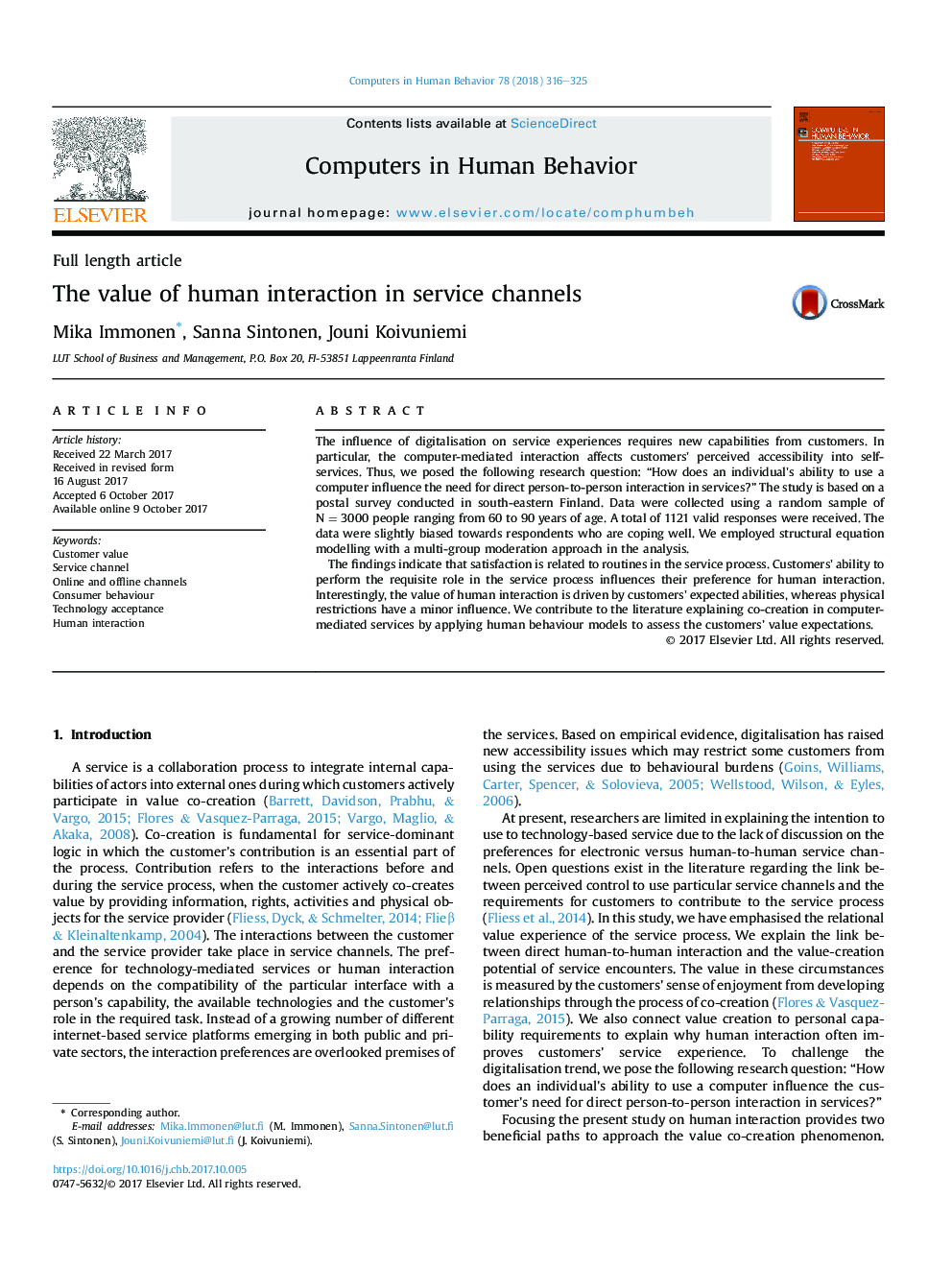| Article ID | Journal | Published Year | Pages | File Type |
|---|---|---|---|---|
| 4937013 | Computers in Human Behavior | 2018 | 10 Pages |
â¢Role readiness in technology use lead convenient usage and positive attitudes.â¢Poor design of the self-service interface create human interaction preferable.â¢The physical restrictions explains self-efficacy in the good health group only.â¢Consistency in overall to reduce the customer's cognitive load in digital services.
The influence of digitalisation on service experiences requires new capabilities from customers. In particular, the computer-mediated interaction affects customers' perceived accessibility into self-services. Thus, we posed the following research question: “How does an individual's ability to use a computer influence the need for direct person-to-person interaction in services?” The study is based on a postal survey conducted in south-eastern Finland. Data were collected using a random sample of NÂ =Â 3000 people ranging from 60 to 90 years of age. A total of 1121 valid responses were received. The data were slightly biased towards respondents who are coping well. We employed structural equation modelling with a multi-group moderation approach in the analysis.The findings indicate that satisfaction is related to routines in the service process. Customers' ability to perform the requisite role in the service process influences their preference for human interaction. Interestingly, the value of human interaction is driven by customers' expected abilities, whereas physical restrictions have a minor influence. We contribute to the literature explaining co-creation in computer-mediated services by applying human behaviour models to assess the customers' value expectations.
